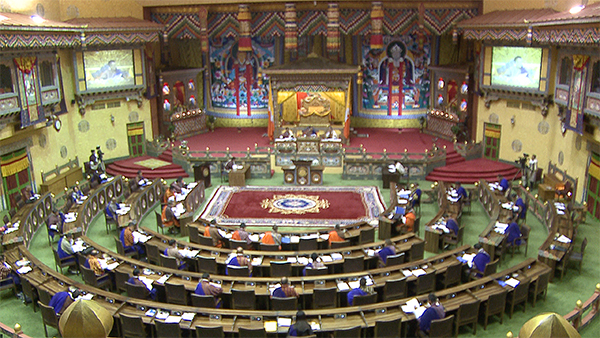 The Anti-Corruption Commission (ACC) and the Good Governance Committee (GGC) of the National Assembly will carry out feasibility studies for the establishment of an Ombudsman’s Office in the country.
The Anti-Corruption Commission (ACC) and the Good Governance Committee (GGC) of the National Assembly will carry out feasibility studies for the establishment of an Ombudsman’s Office in the country.
This was decided in the National Assembly today after the GGC recommended it following its review of the Anti-Corruption Commission’s Annual Report 2016.
The committee said having an Ombudsman’s Office, a need for which is also reflected in the ACC report, will help free the Commission from having to deal with complaints that are administrative in nature. This, both GGC and ACC said, will help the commission devote its time, resources and effort in tackling major corruption cases.
The ACC, in its report, stated that at the moment it remains overwhelmed with complaints relating to administrative issues. Close to 48 per cent of such complaints were referred to the concerned agencies. The agencies are required to conduct an inquiry into the matter and report to ACC through an Action Taken Report (ATR). But the practice results in numerous complications.
Firstly, the report noted that the agencies are busy and are not able to devote the required attention to the complaint. They are also not able to address the matter on time putting at risk the quality of enquiry.
Lack of uniformity in handling the complaints among the different agencies including actions being taken is another issue. There is also the issue of dissatisfaction among the complainants when their cases are being redirected to the very agency against which the complaint is lodged. The report states complainants prefer an independent or a third party to conduct the enquiry.
These issues are expected to be solved with the establishment of an Ombudsman’s Office as it will take care of such cases.
Supporting the establishment of an Ombudsman’s Office, the GGC said while the G2C initiative has helped improve delivery of service through transparency in information dissemination, the redressing aspect needs improvement. The committee added having an Ombudsman’s Office will help redress the grievances better, which will contribute towards greater well being of the citizens.
Meanwhile, the committee, after reviewing the ACC report, presented eight other recommendations to improve coordination among the commission and other relevant stakeholders.
The National Assembly, however, dropped the recommendation of the Finance and Economics Affairs ministries having to present their findings and views on the proposals for the improvements in trade licensing and customs and tax administration.
The follow-up report on the resolutions will be tabled in the next session of the Parliament.








